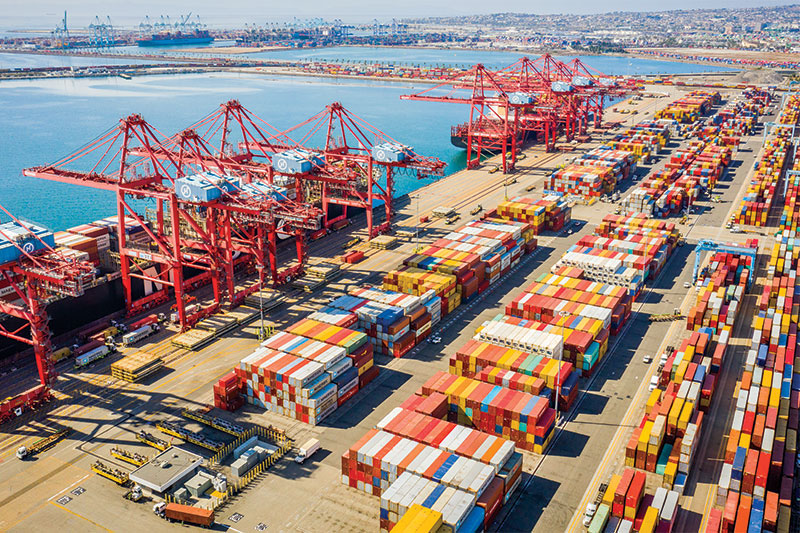POLA and POLB push back consideration of container dwell fee until December 20
The Port of Los Angeles (POLA) and the Port of Long Beach (POLB) again postponed the implementation date for their ocean carrier Container Dwell Fee, which will not be considered before Friday December 20.
This follows previous joint announcements by POLA and POLB, whom collectively account for roughly 40% of United States-bound import volumes, indicating that consideration of the fee would be pushed back until November 22 and subsequently November 29, December 6, and December 13.
Going back to when the fee was initially rolled out on October 25, POLA and POLB said that the ports have seen a cumulative 47% decline in the amount of aging cargo on their docks, a 12% gain over the week of December 6.
And the ports added that their respective executive directors will reassess fee implementation after another week of monitoring data.
In late October, the ports announced they would start assessing surcharges to ocean carriers for import containers dwelling on marine terminals, as part of an effort to clear out the significant backlog at the ports.
As previously reported, the ports said that, as per this policy, they will charge ocean carriers for each container falling into two categories:
- for containers scheduled to move by truck, ocean carriers will be charged for every container dwelling nine days or more; and
- for containers moving by rail, ocean carriers will be charged if the container has dwelled for three days or more
And beginning November 1, POLA and POLB previously said that ocean carriers with cargo in either of these categories would be charged $100 per container, which will increase in $100 increments per container per day. The ports said that the fees collected from this initiative will be reinvested for programs to enhance efficiency, accelerate cargo velocity, and also address congestion impacts throughout San Pedro Bay.
These fees were subsequently approved by the Harbor Commissions of both ports on October 29.
POLA and POLB officials said that prior to the mid-2020 pandemic-driven run-up in imports, containers for local delivery, on average, were on container terminals for less than four days, with containers destined for trains dwelled for less than two days.
This is not the first time POLA and POLB have partnered up in recent weeks.
In mid-September, they said that each port will expand its hours in which trucks pick up and return containers, with POLB to maximize its nighttime operations, and POLA to expand weekend operating gate hours.
POLA’s initiative, which it labeled “Accelerate Cargo LA,” will operate on a pilot basis, according to Seroka, focusing on ensuring gate availability meets cargo demands and also provides greater transparency to improve efficiency.
What’s more, both ports said they have called on maritime terminal operators, in an effort to “incentivize the use of all available gate hours,” with a focus on available night gate hours,” in an effort to reduce congestion and maximize cargo throughput capacity, too.
And in mid-October, the White House met with United States-based business leaders, port leaders, and union leaders to focus on the challenges U.S.-based ports are facing, in addition to what each stakeholder group can do address various supply chain issues.
One of the key themes of that meeting was augmenting supply chain throughput and moving goods more quickly, and also to augment supply chain resiliency. A key cornerstone of this, it said, is shifting to 24/7 operations at the Ports of Los Angeles (POLA) and POLB), whom collectively account for roughly 40% of U.S.-bound import containers and are on track to set new annual highs in 2021.
While POLB transitioned to 24/7 operations in mid-September, POLA is now doing the same, bringing on off-peak night time shifts and weekend hours, which the White House said is expected to double the number of hours cargo can move off of POLA docks and onto the roads to reach final destinations. What’s more, it added that the International Longshore and Warehouse Union (ILWU) has stated its membership are committed to working extra shifts, which will provide the needed capacity in order to clear existing backlogs.













